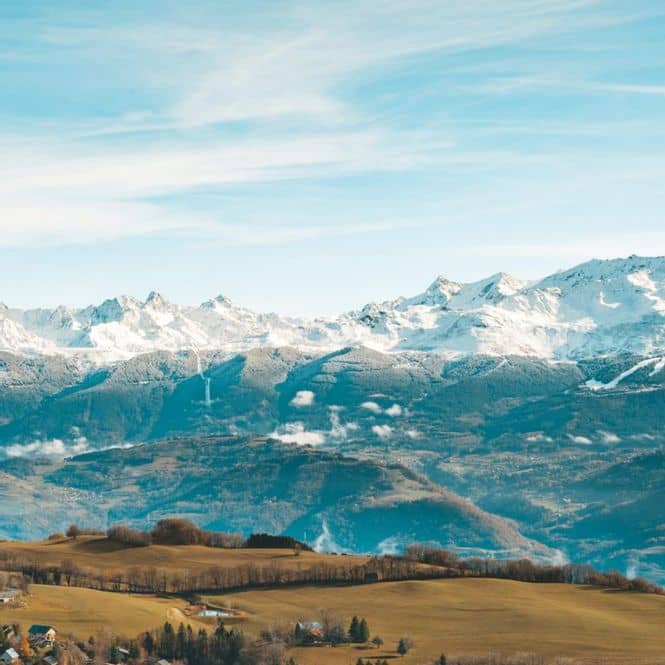History of the General Assembly
The General Assembly on the transition of mountain tourism will be held as part of the French presidency of the European Union’s Strategy for the Alpine Region (EUSALP), extended in 2021.
The General Assembly aims to be a federating force by bringing together a diverse group of players, an innovator through collective implementation methods, and forward-thinking by the deliverables produced. The idea is to show that tourism is part of a territorial development approach. Diversified tourism enables resorts and the mountain region itself to regenerate social, environmental, and economic momentum. Here the issue is to develop a varied tourism industry, with overlapping perspectives highlighting the spaces and systemic responses. The General Assembly aims to develop a methodology to ensure that tourism in mountain territories causes as little alteration to the resources as possible, while generating added value for inhabitants.
The event will take place on 23/24 September 2021, consisting of plenary sessions covering the main issues, a European round table discussion, a virtual village of initiatives and collective intelligence workshops in each territory.
In total, 40 territories from the Alps and Jura regions have been identified, with three gateway sites (Pyrénées, Vosges, Massif Central range). This General Assembly also aims to represent the mountain ecosystem, bringing together all stakeholders such as elected officials, socio-professional bodies, associations, design offices, scientists, natural space administrators, farmers, citizens, etc.
The event will address all topics relating to mountain life: the economy, tourism, transport systems, not forgetting education and ecology.
Objectives of the GA
In a backdrop of climate change and a global health crisis, the General Assembly has been organised to address multiple issues:
- Bring together the diverse population of mountain players and create synergy on the need to change the paradigm of the mountain ecosystem.
- Motivate and stimulate people to take action in local territories
- The transition is a far-reaching notion which cannot be easily reproduced in all territories.
- In this backdrop of climate and health crises, it is key to initiate this approach in our mountain territories, spaces that are especially sensitive to climate change. The transition of tourism is a first step in the transition of our territories. The aim is to design this approach together, no longer in a silo-based vertical vision of activities, to ensure useful and effective adaptation and transition.
The event has five main objectives:
- Enable the voices of local players to be heard
- Make the debate accessible to as many as possible
- Co-build a shared vision of the mountain regions
- Promote and communicate on existing initiatives
- Encourage local momentum to ensure full adoption of the transition
The event will produce summary reports with a recap document covering the approach. These summaries and results will be presented to the Range committee and to members of parliament for the mountain areas. Furthermore, a desire to continue the development and construction of territorial transitions will be motivated by the creation of work groups, the continued work of the GA steering committee in association with partners and could be supported by a network of stakeholders in the transition of mountain territories.
